The United States has struck Iran's key nuclear sites -- Fordo, Natanz and Isfahan -- in what is being viewed as a major escalation to the long-standing conflict in middle-east. This leaves us compelled to revisit the past friendship between Iran and the US.
US once asked Iran to save Pakistan from India, which was on verge of destruction due to..., here's what Tehran did
The United States has struck Iran's key nuclear sites -- Fordo, Natanz and Isfahan -- in what is being viewed as a major escalation to the long-standing conflict in middle-east. This leaves us compelled to revisit the past friendship between Iran and the US, more specifically, when Washington wanted Iran to help Pakistan during the 1971 war with India.
According to a report by The Indian Express, declassified US State Department documents include minutes of a meeting held in Washington on December 9, 1971 -- the time when India-Pakistan war was at its peak. Chaired by Henry Kissinger, then national security advisor to US President Richard Nixon, the meeting saw officials scratching their heads over the lack of fuel reserves in West Pakistan. They were fretting over the fact that Islamabad soon could be taken down by New Delhi as its major fuel reserves had been destroyed by Indian strikes.
Next, Kissinger asked the officials if fuel supplies could be rushed from Iran to Pakistan so that West Pakistan could be saved from being captured by India. By then, New Delhi had already conquered East Pakistan (today's Bangladesh), successfully separating it from West Pakistan (today's Pakistan).
Meanwhile, in the same meeting, discussions were also held on supplying Pakistan with fighter aircraft from Iran and seeking China to make threaten India, the report suggested.
CIA Director Richard Helms told the officials that he had received a report from Karachi, suggesting the oil tanks there had been hit again, in the 12th or 13th air raid, and that six or eight of them had been burning. "An ESSO representative has indicated that this means the loss of 50 per cent of Karachi’s oil reserves, which amounts to over 80% of the POL [petrol, oil, lubricants] for all of Pakistan. He estimates that they are left with a two-week supply, possibly less at the rate at which POL is now being consumed,” he said.
As per the report, Kissinger asked the Chairman Joint Chiefs of Staff Admiral Thomas H Moorer for his estimate of the military situation of Pakistan. Moorer clearly said that in East Pakistan, it was a matter of time until the Pak army would be left totally ineffective. “Their supplies are cut off and they have no air left. Any serious fighting could be over in ten days or two weeks, depending on whether the Paks continue to fight to the last man or whether they begin to surrender in large numbers, which does not seem to be in the cards now,” he said.
The admiral said that Pakistanis can operate about three weeks or so, highlighting that the then-Prime Minister Indira Gandhi had clarified her intention to "destroy the Pak military force". "However, if there is a period of attrition, with no ceasefire, the Indians can hold out longer and the Paks have had it. Mrs. Gandhi has stated that her objective is to destroy the Pak military forces,” he said.
What did Iran say?
A senior US embassy official met with the Shah of Iran in Tehran on December 8, 1971, seeking to discuss the possibility of Iranian military support for Pakistan. The Shah told him that he had informed the Pakistani ambassador in Tehran that, given Indian and the Soviet Union had signed a friendship treaty, he could not help Pakistan with military support. The Shah stated that he wasn't ready to risk confrontation with the Soviet Union.
Pertinent to note that former PM Indira Gandhi had signed a treaty with the Soviet Union, under which, the latter was to support India in its standoff with Pak.
However, the Shah suggested an alternative, appealing to the US to urge King Hussein to send Jordanian F-104 fighters to Pakistan. Here, the Shah in turn would send two squadrons of Iranian aircraft to Jordan to defend it while Jordanian planes and pilots were deployed in Islamabad.
However, it couldn't happen due to legal restrictions.
 Coolie trailer review: Rajinikanth is back in vintage mass avatar, but lacks stong plot, Aamir Khan looks wasted, War 2 will easily overpower Thalaiva in North
Coolie trailer review: Rajinikanth is back in vintage mass avatar, but lacks stong plot, Aamir Khan looks wasted, War 2 will easily overpower Thalaiva in North 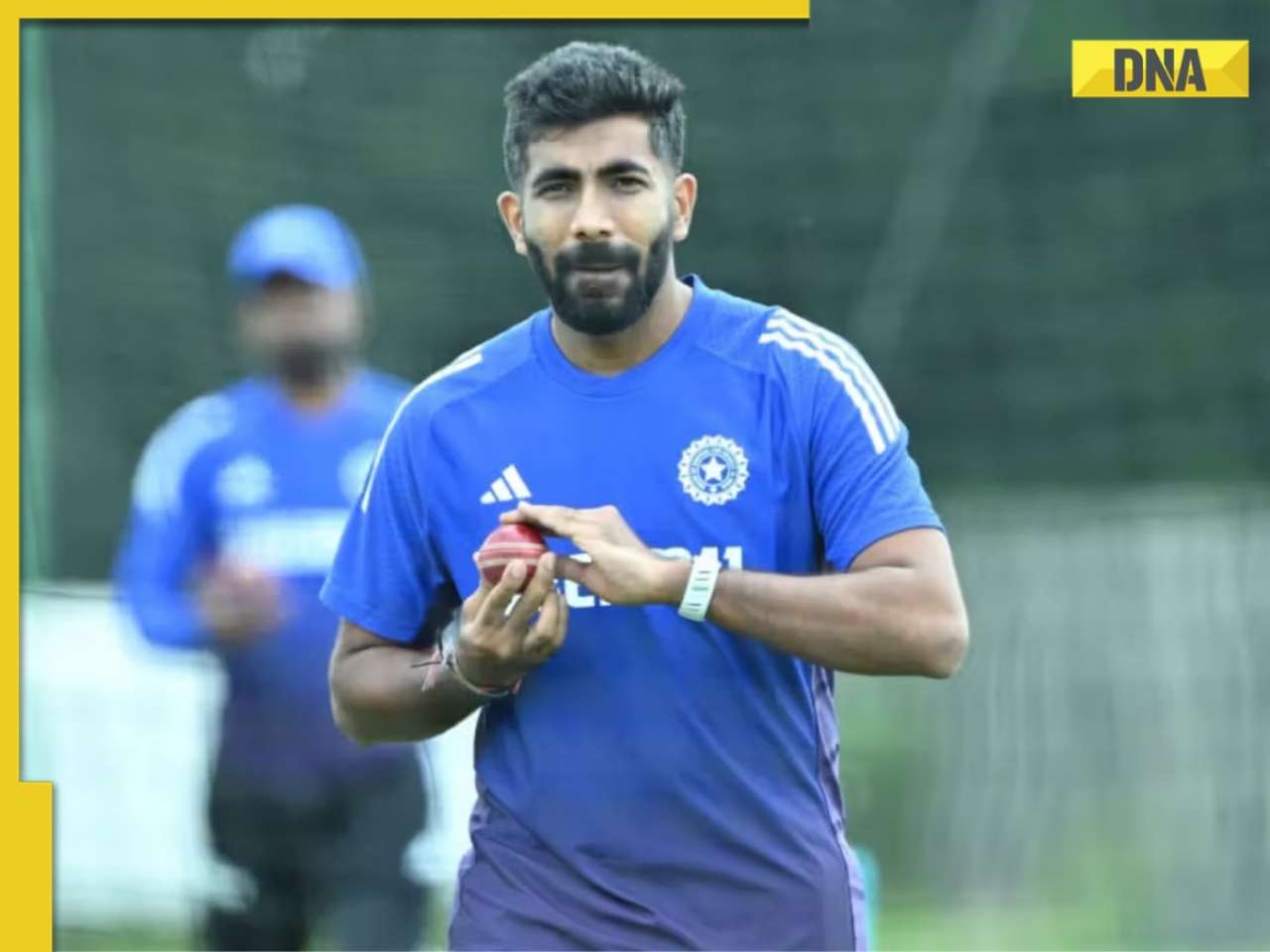 Jasprit Bumrah to miss Asia Cup 2025? Report makes BIG claim amidst workload concerns
Jasprit Bumrah to miss Asia Cup 2025? Report makes BIG claim amidst workload concerns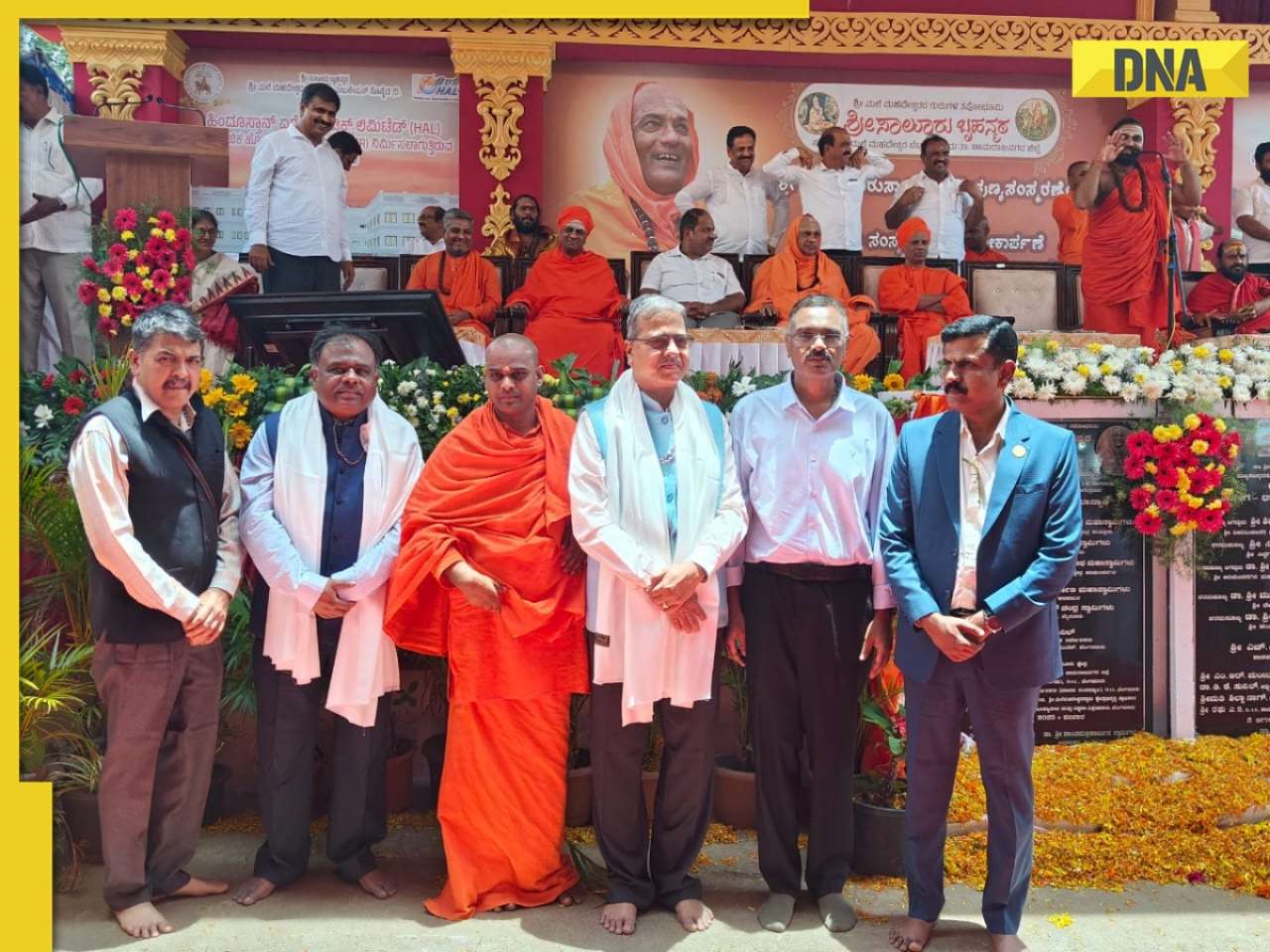 HAL signs historic Rs 4.77 crore education MoU at Salur Math in MM Hills Karnataka
HAL signs historic Rs 4.77 crore education MoU at Salur Math in MM Hills Karnataka 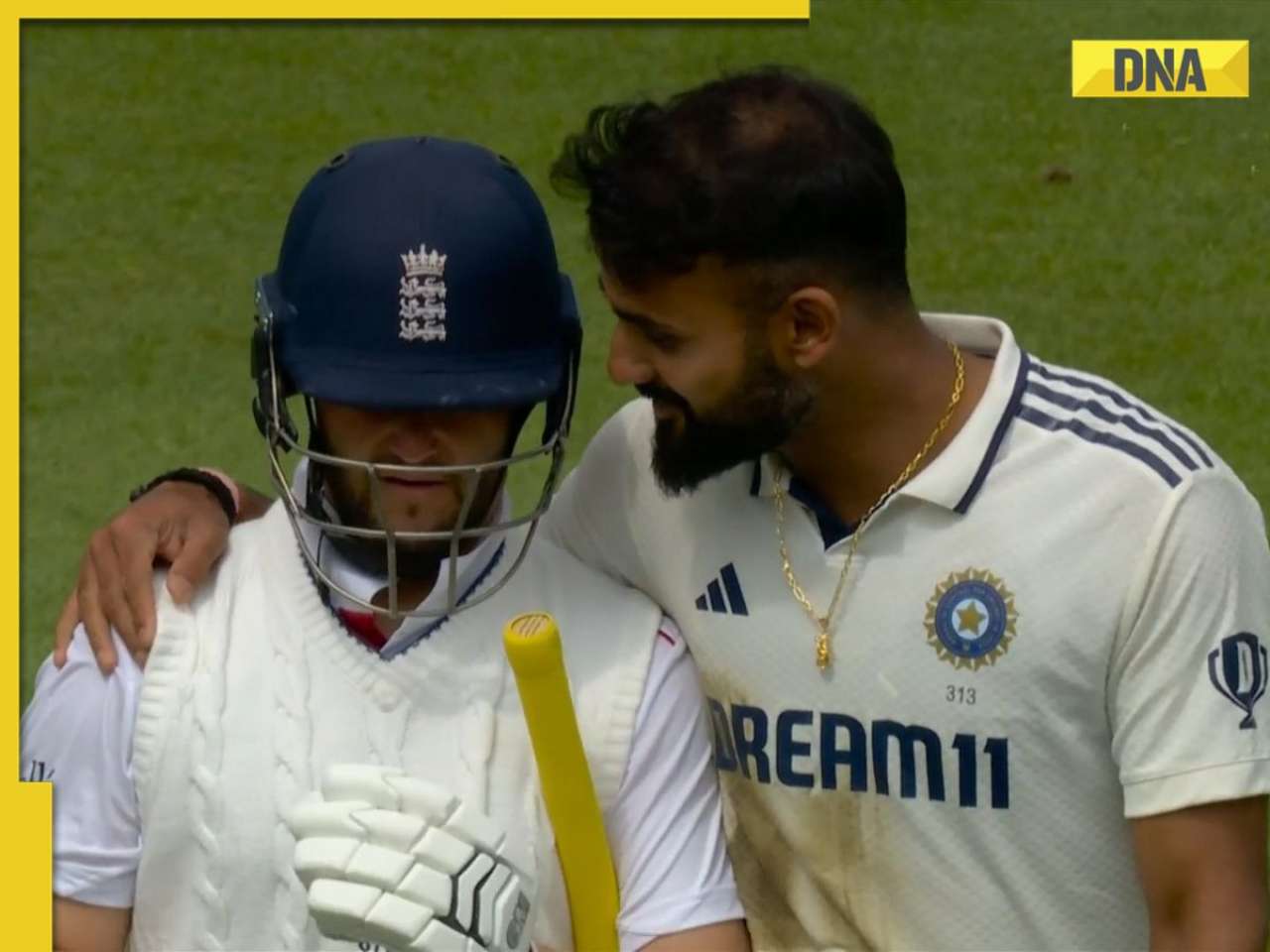 'Try doing that to Viv Richards': Akash Deep schooled by Michael Atherton, Ravi Shastri over Ben Duckett send-off
'Try doing that to Viv Richards': Akash Deep schooled by Michael Atherton, Ravi Shastri over Ben Duckett send-off Viral video: Shah Rukh Khan openly said he deserved National Award for THIS film, lost honour to...: 'I think I should have got it, but...'
Viral video: Shah Rukh Khan openly said he deserved National Award for THIS film, lost honour to...: 'I think I should have got it, but...' Jeera water vs Saunf water: Which morning drink works better for you?
Jeera water vs Saunf water: Which morning drink works better for you? 8 surprising ways to use orange peel in kitchen
8 surprising ways to use orange peel in kitchen NASA shares 8 breathtaking images of Helix Nebula
NASA shares 8 breathtaking images of Helix Nebula 7 silent signs of bone cancer you should never ignore
7 silent signs of bone cancer you should never ignore
 7 mesmerising star formation images captured by NASA's James Webb Space Telescope
7 mesmerising star formation images captured by NASA's James Webb Space Telescope Exclusive: Jyoti Malhotra on Volvo XC60, New Launches & Volvo’s India Strategy | Volvo Car India MD
Exclusive: Jyoti Malhotra on Volvo XC60, New Launches & Volvo’s India Strategy | Volvo Car India MD Exclusive Interview: Rajeev Kapur on Steelbird’s New Helmets & Global Strategy!
Exclusive Interview: Rajeev Kapur on Steelbird’s New Helmets & Global Strategy! Futuristic Education: AI or Natural Intelligence, What's in focus? | Rajiv Tandon, BITS Pilani Digital
Futuristic Education: AI or Natural Intelligence, What's in focus? | Rajiv Tandon, BITS Pilani Digital Tata Harrier EV Review | Most Advanced Electric SUV from Tata?
Tata Harrier EV Review | Most Advanced Electric SUV from Tata? Vida VX2 Plus Electric Scooter Review: Range, Power & Real-World Ride Tested!
Vida VX2 Plus Electric Scooter Review: Range, Power & Real-World Ride Tested! HAL signs historic Rs 4.77 crore education MoU at Salur Math in MM Hills Karnataka
HAL signs historic Rs 4.77 crore education MoU at Salur Math in MM Hills Karnataka  Meet Indian-origin richest man in Indonesia, with net worth of Rs 725000000000, brother-in-law of India's famous billionaire, his business is...
Meet Indian-origin richest man in Indonesia, with net worth of Rs 725000000000, brother-in-law of India's famous billionaire, his business is... ED issues Look Out Circular against Anil Ambani in Rs 17,000 crore bank loan fraud case
ED issues Look Out Circular against Anil Ambani in Rs 17,000 crore bank loan fraud case BIG move by BSNL as it rolls out new plan for just Re 1; check validity, offer, data limit and more
BIG move by BSNL as it rolls out new plan for just Re 1; check validity, offer, data limit and more Elon Musk's Tesla set to open 1st charging station in India on...; check charging speed, price
Elon Musk's Tesla set to open 1st charging station in India on...; check charging speed, price Preity Zinta’s go-to fitness formula for staying lean and active at 50, 'It does not matter how long...'
Preity Zinta’s go-to fitness formula for staying lean and active at 50, 'It does not matter how long...' Liked Kingdom? Don’t miss these 5 Vijay Deverakonda films that showcase his versatility
Liked Kingdom? Don’t miss these 5 Vijay Deverakonda films that showcase his versatility Before watching Vijay Deverakonda’s Kingdom, know 5 box office hits he said NO to
Before watching Vijay Deverakonda’s Kingdom, know 5 box office hits he said NO to Pooja Batra’s monokini look is blend of tropical vibes and monsoon style inspiration; SEE PICS
Pooja Batra’s monokini look is blend of tropical vibes and monsoon style inspiration; SEE PICS Taarak Mehta Ka Ooltah Chashmah star Deepti Sadhwani’s simple diet plan helped her lose 17 Kg in 6 months: Here’s how she did it
Taarak Mehta Ka Ooltah Chashmah star Deepti Sadhwani’s simple diet plan helped her lose 17 Kg in 6 months: Here’s how she did it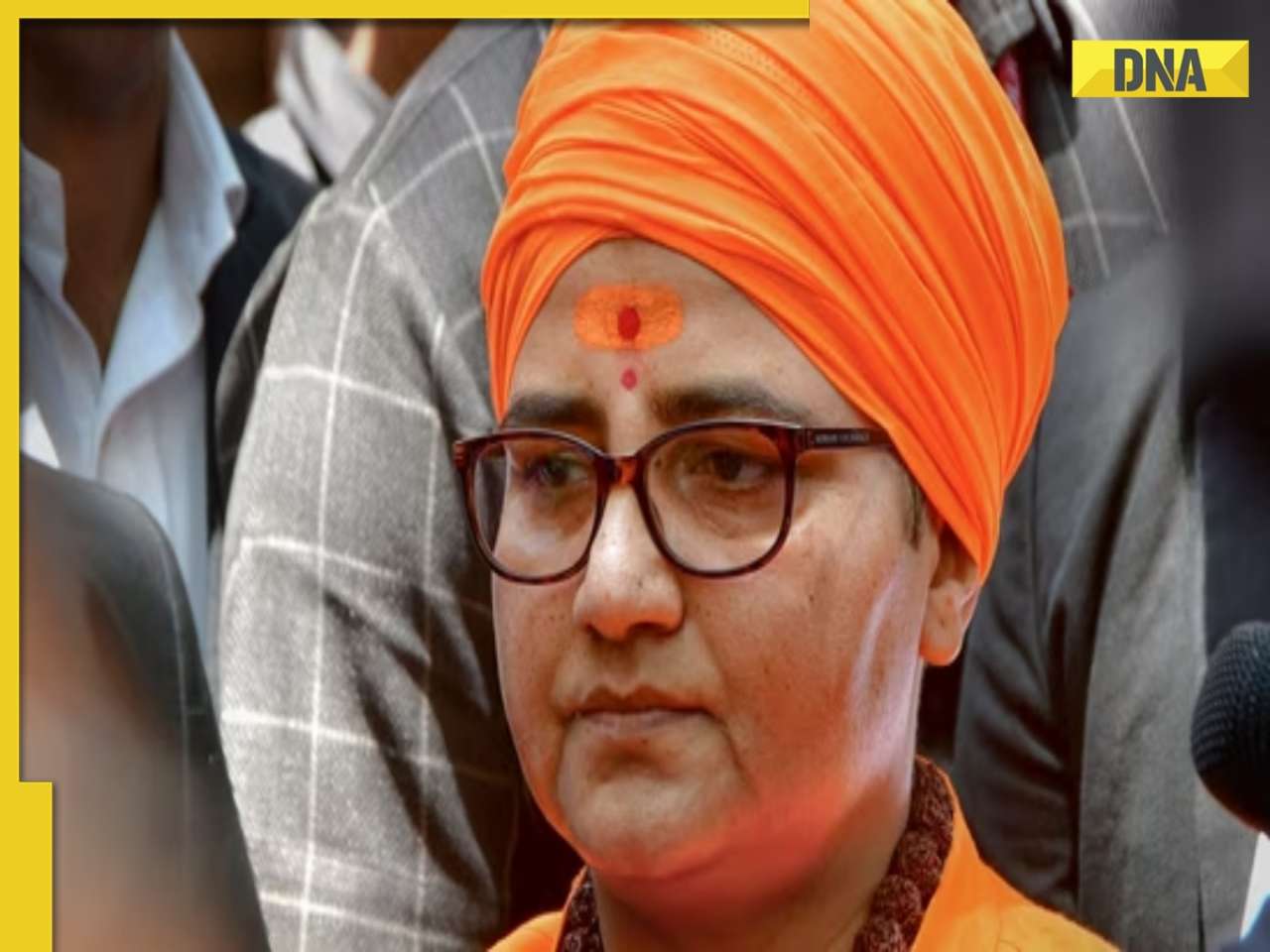 Pragya Thakur's SHOCKING claim on Malegaon blast case, says, 'was forced to take names of...'
Pragya Thakur's SHOCKING claim on Malegaon blast case, says, 'was forced to take names of...' Former JDS MP Prajwal Revanna sentenced to life imprisonment for sexually assaulting house help
Former JDS MP Prajwal Revanna sentenced to life imprisonment for sexually assaulting house help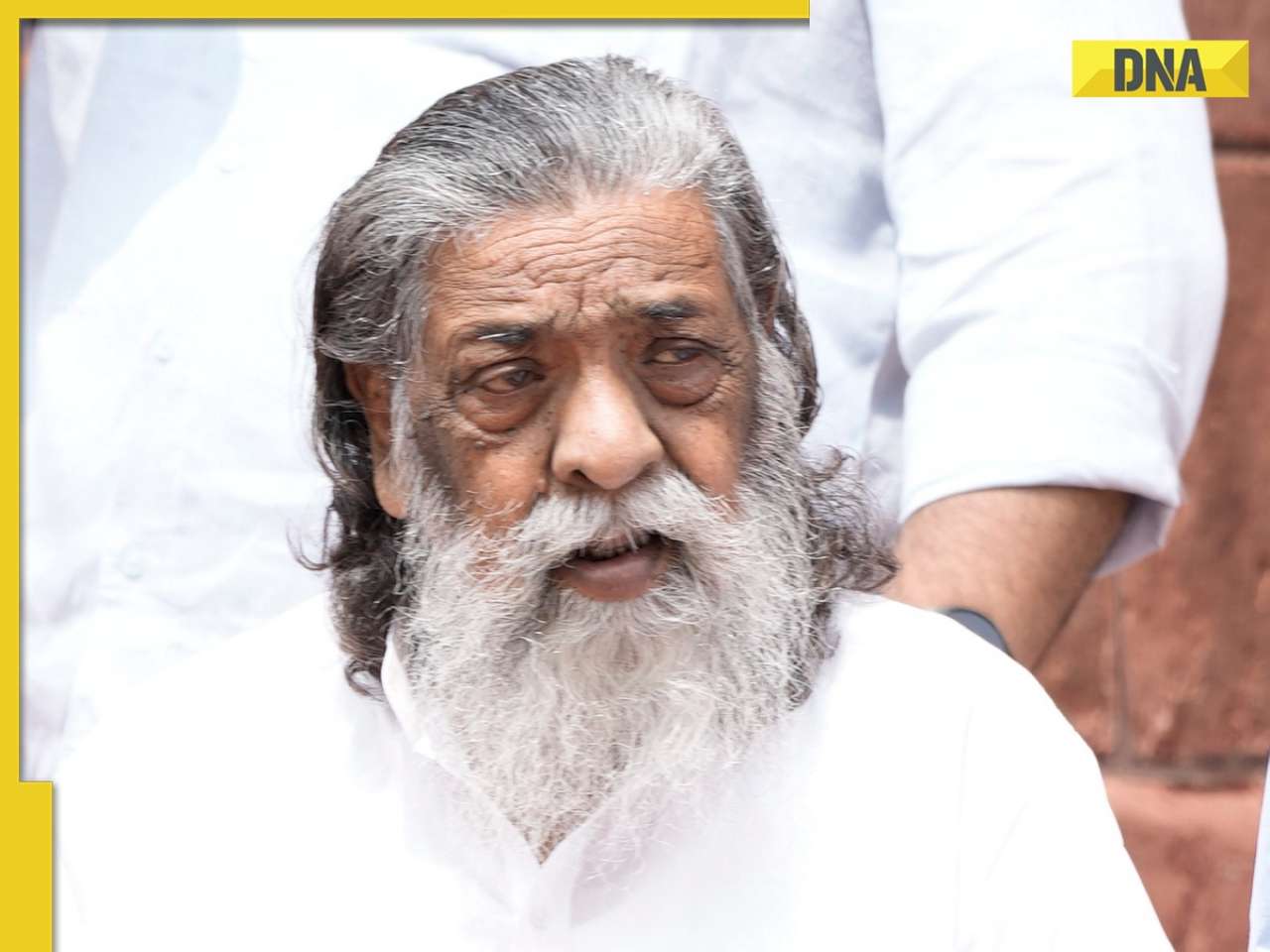 Former Jharkhand CM Shibu Soren critical, on ventilator: Reports
Former Jharkhand CM Shibu Soren critical, on ventilator: Reports 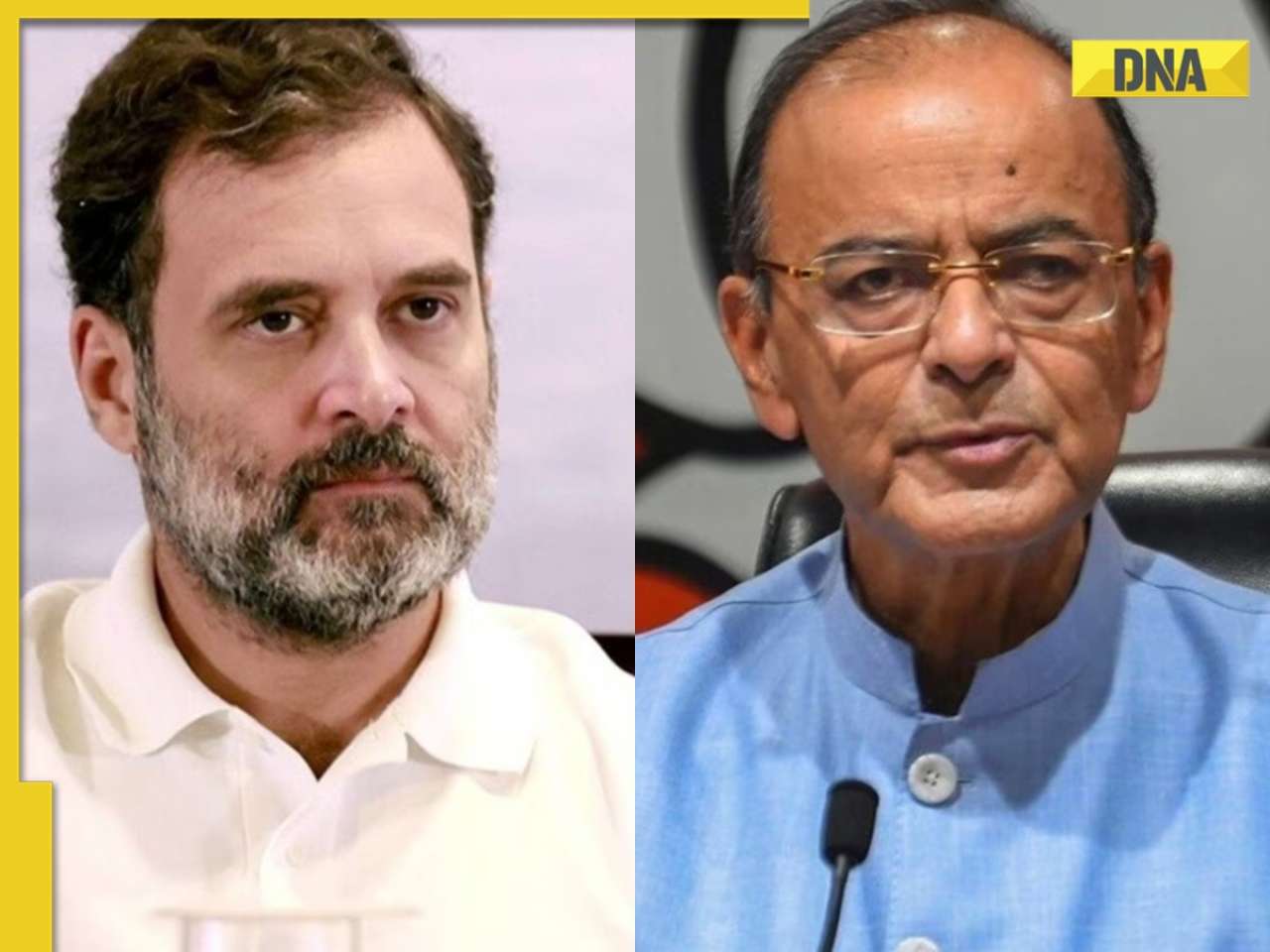 Rahul Gandhi alleges NDA government sent late Arun Jaitley to 'threaten' him over farm laws, introduced a year after his death; son Rohan Jaitley reacts
Rahul Gandhi alleges NDA government sent late Arun Jaitley to 'threaten' him over farm laws, introduced a year after his death; son Rohan Jaitley reacts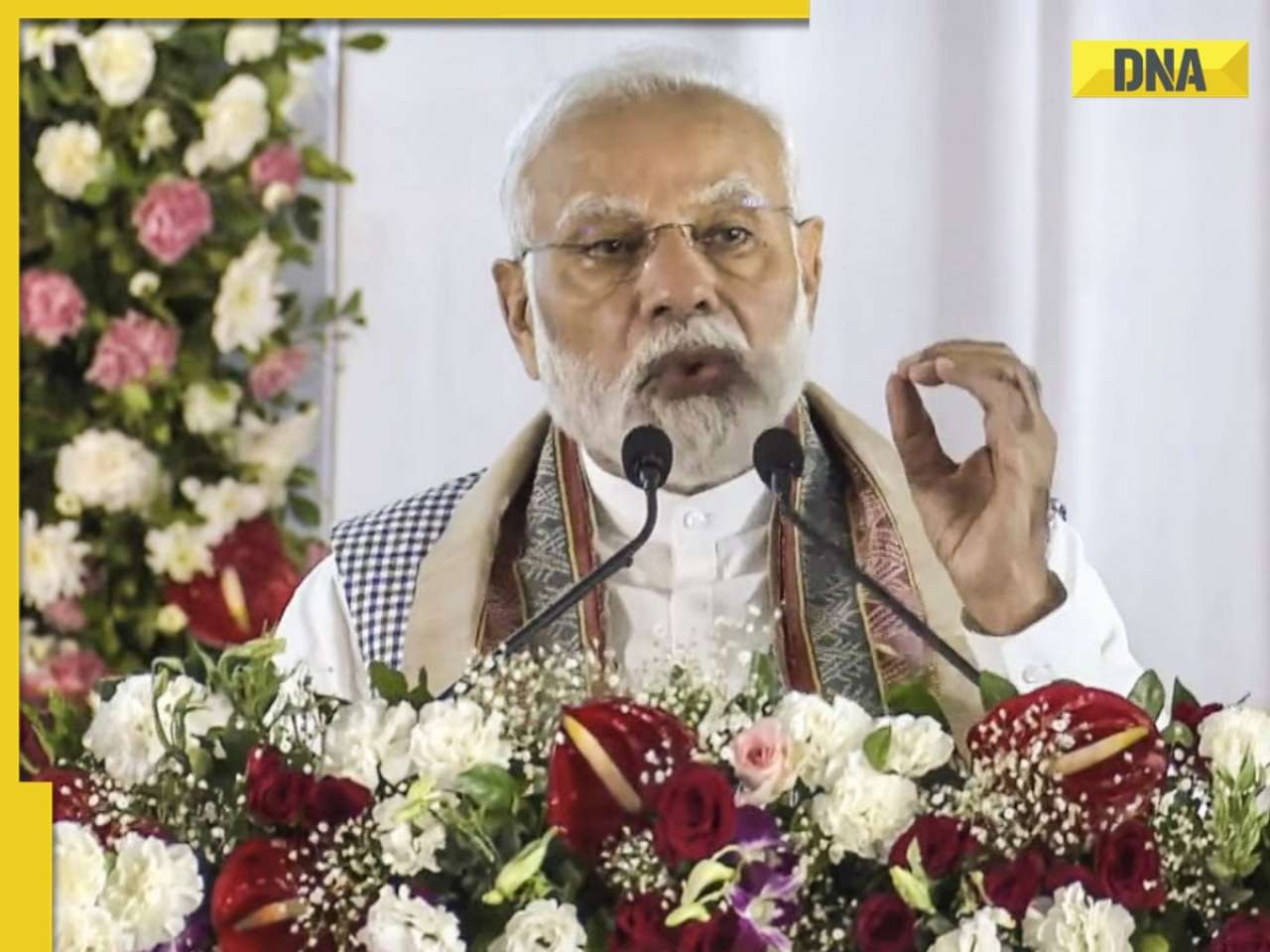 Amid US President Trump's 25 percent tariff, PM Modi says India should remain vigilant over its economic interests, vows to protect farmers’ interests
Amid US President Trump's 25 percent tariff, PM Modi says India should remain vigilant over its economic interests, vows to protect farmers’ interests Over 2800 MBBS seats go unfilled in 2024 despite 39% rise due to...
Over 2800 MBBS seats go unfilled in 2024 despite 39% rise due to...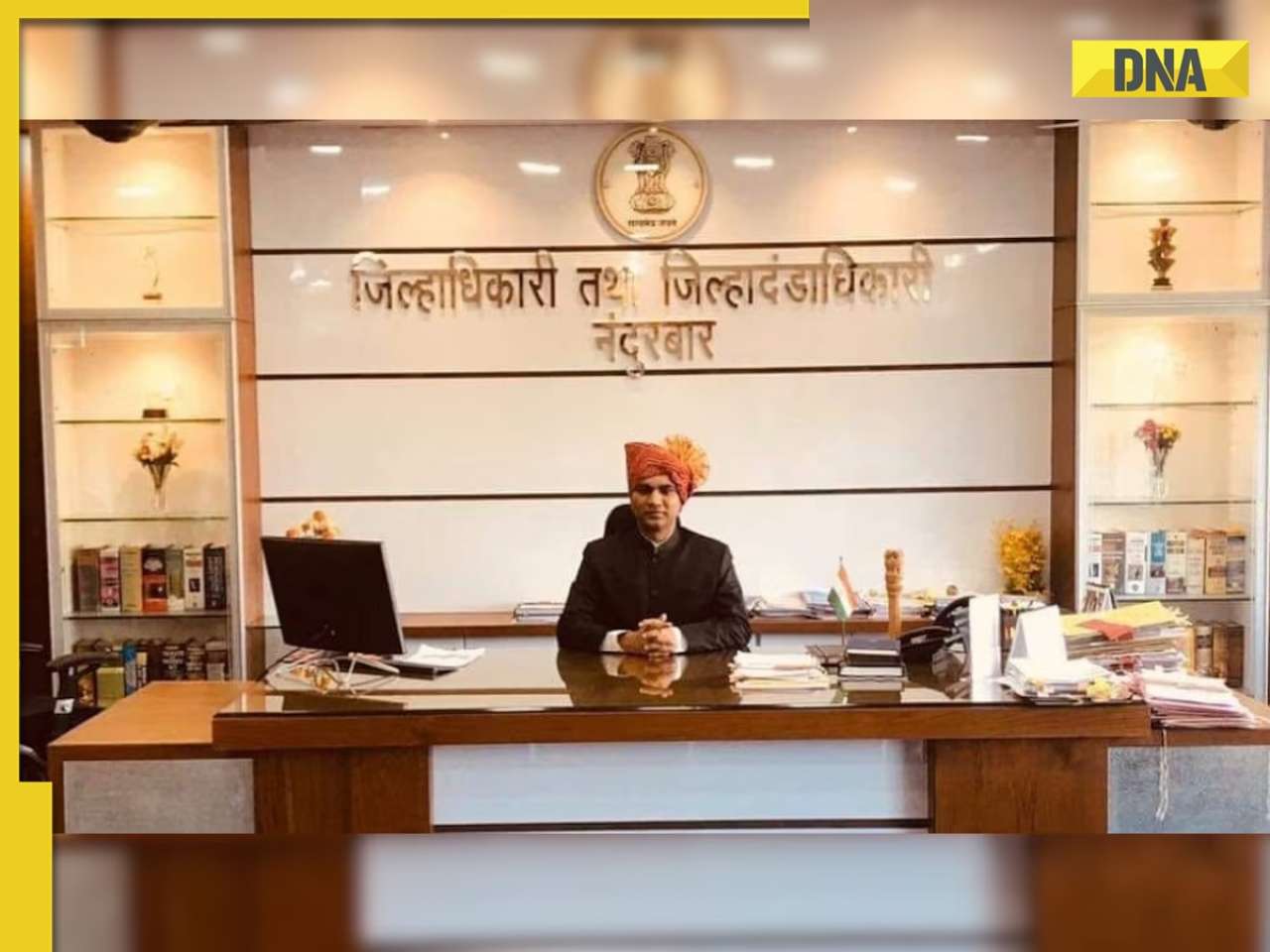 Meet IAS officer, whose mother used to sell desi wine, studied MBBS, later cracked UPSC with AIR..., he is...
Meet IAS officer, whose mother used to sell desi wine, studied MBBS, later cracked UPSC with AIR..., he is... Meet woman, NLU grad, who left her job at legal firm, topped UPSC exam in second attempt with AIR..., her backup plan was...
Meet woman, NLU grad, who left her job at legal firm, topped UPSC exam in second attempt with AIR..., her backup plan was... Meet woman who left medical studies to fulfill father’s wish, cracked UPSC exam, became IPS, then IAS officer after failing thrice, her AIR is...
Meet woman who left medical studies to fulfill father’s wish, cracked UPSC exam, became IPS, then IAS officer after failing thrice, her AIR is... Meet woman, 3.5 feet tall IAS officer who was once made fun of, later graduated from DU, cracked UPSC exam on her first attempt, she is...
Meet woman, 3.5 feet tall IAS officer who was once made fun of, later graduated from DU, cracked UPSC exam on her first attempt, she is... Maruti Suzuki's e Vitara set to debut electric market at Rs..., with range of over 500 km, to launch on...
Maruti Suzuki's e Vitara set to debut electric market at Rs..., with range of over 500 km, to launch on... This is world’s most expensive wood, cost of 1kg wood is more than gold, its name is..., is found in...
This is world’s most expensive wood, cost of 1kg wood is more than gold, its name is..., is found in... This luxury car is first choice of Indians, even left BMW, Jaguar, Audi behind in sales, it is...
This luxury car is first choice of Indians, even left BMW, Jaguar, Audi behind in sales, it is... Kia India unveils Carens Clavis: Check features, design changes, price and more; bookings open on...
Kia India unveils Carens Clavis: Check features, design changes, price and more; bookings open on... Tesla CEO Elon Musk launches most affordable Cybertruck, but it costs Rs 830000 more than older version, it is worth Rs...
Tesla CEO Elon Musk launches most affordable Cybertruck, but it costs Rs 830000 more than older version, it is worth Rs...




)
)
)
)
)
)
)
)
)
)
)
)
)
)
)
)











